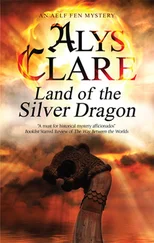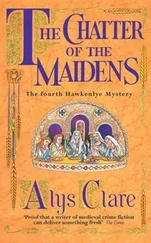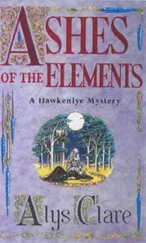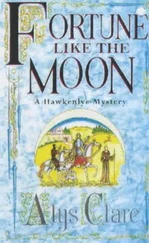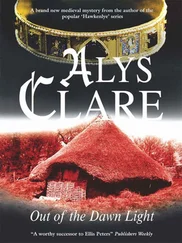Alys Clare - Music of the Distant Stars
Здесь есть возможность читать онлайн «Alys Clare - Music of the Distant Stars» весь текст электронной книги совершенно бесплатно (целиком полную версию без сокращений). В некоторых случаях можно слушать аудио, скачать через торрент в формате fb2 и присутствует краткое содержание. Год выпуска: 2011, Издательство: Ingram Distribution, Жанр: Исторический детектив, на английском языке. Описание произведения, (предисловие) а так же отзывы посетителей доступны на портале библиотеки ЛибКат.
- Название:Music of the Distant Stars
- Автор:
- Издательство:Ingram Distribution
- Жанр:
- Год:2011
- ISBN:нет данных
- Рейтинг книги:3 / 5. Голосов: 1
-
Избранное:Добавить в избранное
- Отзывы:
-
Ваша оценка:
- 60
- 1
- 2
- 3
- 4
- 5
Music of the Distant Stars: краткое содержание, описание и аннотация
Предлагаем к чтению аннотацию, описание, краткое содержание или предисловие (зависит от того, что написал сам автор книги «Music of the Distant Stars»). Если вы не нашли необходимую информацию о книге — напишите в комментариях, мы постараемся отыскать её.
Music of the Distant Stars — читать онлайн бесплатно полную книгу (весь текст) целиком
Ниже представлен текст книги, разбитый по страницам. Система сохранения места последней прочитанной страницы, позволяет с удобством читать онлайн бесплатно книгу «Music of the Distant Stars», без необходимости каждый раз заново искать на чём Вы остановились. Поставьте закладку, и сможете в любой момент перейти на страницу, на которой закончили чтение.
Интервал:
Закладка:
They would have negotiated, that rich and determined woman and the man who knew his duty and would do it to the best of his ability. Power he had, for he belonged to the de Villequier family; money he needed, and money his wife would bring. How much did he demand as her dowry? Did he add on a sum for each of her drawbacks? I did not know, could not know, how these matters were arranged. Sir Alain had impressed me as a pleasant, even kind, man. He was certainly attractive, and I had no doubt that any woman whose hand he sought would readily give it. Yet he had agreed to marry Lady Claude. Perhaps it had even been he who had initiated the proceedings, for his new appointment must surely offer the possibility of advancement if he performed well, and advancement needs money if it is to be sustained.
I sent my mind back to that day, the first meeting between Lady Claude and Sir Alain in her mother’s great hall. I saw Sir Alain as at last he took his leave. I saw him mount his beautiful horse — I recalled the bay mare with the star on her brow — and ride away, his emotions a mix of triumph because he had secured a wealthy heiress as his wife and dejection because of who and what that wife was. I saw him turn a corner in the track and come across a young woman with a bunch of wild flowers in her hand. I sensed the instant attraction that flared between the man and the young woman, shooting out like a visible, tangible thing. A thread, fine but unbelievably strong, that drew them to each other and then bound them together.
I do not know if that was how it was; the circumstances might have been different — they probably were — but the result was the same. Sir Alain and Ida fell in love, they became lovers — the most secretive lovers there have ever been — and then Ida conceived a child. Sir Alain’s child.
How did she react? Was she apprehensive, nervous, delighted, exuberant? She was happy, of that I had no doubt, for both Lord Gilbert and Lady Emma had spoken of her as cheerful and smiling. She must have known what difficulties the future would hold. There would be many, of that there could be no doubt, for her lover was to be married soon, and Ida would always have to remain hidden in the background of his life. If she had appreciated this — and surely she must have done? — then it had not dented her delight. Perhaps she had trusted him to make provision for her and the child. Perhaps he had suggested some workable arrangement whereby she would be set up in a little house, not too far away, where he would be able to visit regularly. There would, after all, be plenty of money once he was married to Lady Claude. Would he see anything immoral in using his wife’s money to support his lover and her child? Would his conscience be pricked as he lay in the luxury of his marriage bed with the chilling depiction of Lust staring down on him?
I was temped to condemn him for his immorality and his dishonesty. Then I remembered that he was going to have to share the remainder of his life with Lady Claude, and I began to have a little sympathy. My impressions of her were singularly unfavourable. It might not be her fault, but she would, I was quite sure, be a reluctant wife and do her uxorial duty with clenched teeth and tightly-closed eyes, her bony body rigid and unreceptive. I tried to feel sorry for her, too. She wanted to be a nun, not a wife, and perhaps, having set her feet on that difficult path, she had already eschewed any thoughts of physical love. Chastity, charity, obedience; those were the vows of a nun, as I knew from my sister Elfritha.
Unbidden, into my mind came a memory of Elfritha and her nuns at Chatteris, faces alight with laughter and eyes full of joy. It was very hard work being a nun — you could not help being aware of that if someone you loved entered a convent — but it had become clear to my parents, my siblings and me that the life had its compensations, and that these were rich and sometimes unexpected. I tried to imagine Lady Claude in the company of the Chatteris nuns, and I failed. Before I could prevent it, I had the unkind thought that the Lord Jesus would have accepted poor Claude, but even he might have been a little reluctant.
The poor woman would have-
Suddenly, I was struck by a thought so dreadful that I stopped dead. Hrype turned to stare at me and, not ready to share my suspicion, I forced a smile and started walking again. We were close to home now, but all thoughts of something to eat and drink and the wonderful expectation of taking off my boots and soaking my sore feet in cool water flew out of my mind.
But I like Sir Alain! I wailed silently. He’s a man who loves life, and who is naturally cheerful and affectionate! Reluctantly, I admitted to myself that I found him attractive, as indeed I suspected most women would.
I ought not to like him. He was not — could not be — what he seemed. For his own and his family’s sound reasons, he was betrothed to a stern and unforgivingly righteous woman whose idea of suitable decoration for her marriage bed was a harsh depiction of the Seven Deadly Sins. He had impregnated his future wife’s seamstress — and if Claude ever found out, he could swiftly wave farewell to the life he envisaged with her, the life that her money would buy him. He would lose his grand new appointment — Lady Claude’s mother would make sure of that — and the name of Alain de Villequier would fade inexorably from the consciousness of everyone who mattered in King William’s realm, the king himself included.
I ought to hate him. He had seduced poor Ida and made her pregnant. Unable to risk the possibility that she would reveal her secret and run to her mistress to tell her who had fathered the child in her belly, Alain had killed her.
Trying not to let emotion overwhelm me, I thought about that. How had he managed to get her out on the artificial island? Had they had a regular trysting place where they went under the kind cover of darkness, and had he, knowing what must happen as they met for the final time, suggested crossing to the island? They would, he might have said, be even less likely there to attract unwelcome attention, even as he planned to use the lonely location for his own violent purpose.
How had he appeared, that day I led him out to where I had found Ida’s body? I had attributed the emotion in his face and the gruff break in his voice to his sorrow at a young life choked out; I had been wrong. He had been horrified because his careful hiding place had been so swiftly discovered.
What a clever, efficient dissembler the man was. .
Something in me that had warmed to him, trusted him, liked him, cracked and broke.
Hrype felt the sorrow flow out of his silent companion. He was aware of the trend of her thoughts; indeed, his own had worked to the same conclusion. If Sir Alain had fathered Ida’s child — and the possibility could not be discounted — then it was highly likely he had killed her to prevent her condition, and his responsibility for it, becoming known to Lady Claude.
Hrype was aware of the machinations of the men of power in the world, although he did not comprehend their motivation. There were things to which he gladly dedicated, and would probably give, his own life, but political power and position were not among them. He knew he would never have agreed to marry a woman like Lady Claude de Sees. He might not have met her, but he did not need to. He had lain with two women in his life; he felt sympathy and deep responsibility for one of them, and he loved the other wholeheartedly. She was so very different from Claude that the two might have belonged to separate species.
He sighed. There was half a mile to go before they were back in the village, and he knew he must hurry on to the house he shared with Froya and Sibert, for it was late and Froya had probably decided he would not be home that night. She would be alarmed by his unexpected return, and it would take some time to settle her again. The sooner he began, the sooner they could all go to sleep.
Читать дальшеИнтервал:
Закладка:
Похожие книги на «Music of the Distant Stars»
Представляем Вашему вниманию похожие книги на «Music of the Distant Stars» списком для выбора. Мы отобрали схожую по названию и смыслу литературу в надежде предоставить читателям больше вариантов отыскать новые, интересные, ещё непрочитанные произведения.
Обсуждение, отзывы о книге «Music of the Distant Stars» и просто собственные мнения читателей. Оставьте ваши комментарии, напишите, что Вы думаете о произведении, его смысле или главных героях. Укажите что конкретно понравилось, а что нет, и почему Вы так считаете.



